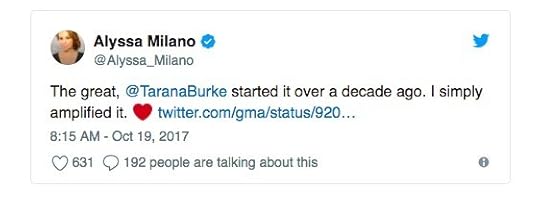Invisible & Silent No Longer
For societal changes to occur, someone must find their voice and inspire others to work toward those changes. Invisibility and silence do not lead to change.
In the United States, one of the most recognized voices for change belonged to Dr. Martin Luther King who spoke eloquently and passionately for civil rights, igniting others to work for the cause. As he predicted, he did not live to see all the desired changes, but he surely helped them happen. Had he lived, perhaps he would have been able to continue the calls for justice enough that we wouldn’t now need #BlackLivesMatter, but sadly, we do. That movement has been active for five years and we still need it! We need all the people who continue to call attention to the pervasive racism in our country — to pull it out from invisibility, to post the damning videos and pictures and force this nation to confront the lingering racism in our communities.
More Voices RisingIn the last year, we’ve seen two other very needed social movements rise: #MeToo — opposing sexual abuse against women, and #NeverAgain — advocating for sanity in our gun laws and stricter gun control. Time will tell how history views these pushes for change, whether they’ve been effective and who will be linked to them. In the case of #MeToo, we’ve already seen a media rush to label Alyssa Milano as the creator of that movement, while Alyssa herself acknowledges that Tarana Burke had called for abused women to share their stories years earlier. Emma González is likely to become the person most linked with #NeverAgain, and I am sure, from what we’ve seen of this smart, courageous young women, that she won’t be happy with that label. To her credit and those around her, they appear to be born collaborators. Thank goodness!

Alyssa and Tarana were born in the early 1970s, Emma in the year 2000. They were born in time to benefit from Women’s History Month, Emma most of all. Women’s History Month, observed in March, began in 1987, encouraging teachers across the nation to include curriculum addressing women’s stories that had been neglected in most classrooms forever. Black History Month came to be in 1976, for the same reason — to shine a light on the often-neglected stories, accomplishments, and contributions of blacks to U.S. history. To be sure, there is no guarantee these ideas will be integrated into classrooms, but over time, the stories filtered into text books.
I taught social studies, U.S. history, in middle school from 1994–2001. Our text book had some sections devoted to stories I had never studied when I was in school — women’s stories, Native American stories, black’s stories. Because of my own interest and experience as a student at Mount Holyoke College, I probably added more women’s history to my curriculum over the years. I remember trying to time our studies of the Civil War to fall in February and focus more on the black experience before, during and after that war. Also, since I was teaching at a Jewish school, I sought stories of Jews in U.S. History.
I was born in 1960. Women were rarely studied in my learning of our country’s history. They were invisible, silent and absent, even though the majority of our teachers were women — at that time, one of the few professions welcoming to women.
But, thanks to the women’s movement of the late 1960s, when my generation (the tail end of the baby boom) left for college, women were making inroads in many more areas: doctors, lawyers, business execs, and later, even astronauts! By no means do I mean those women had it easy, but young women in later generations would come to see more outside work possibilities for themselves beyond teaching, nursing, being a secretary — women in Emma González’s generation can rightly believe that they can do anything they want.
https://medium.com/media/c7e3da98e7f7f28adf863452c0bf2ce8/hrefThe fact that this young woman — she’s only 18! — can go on national television and speak, passionately and intelligently, about her beliefs and inspire others to join in the quest for #NeverAgain speaks volumes about the importance of Women’s History Month. Emma has grown up in an environment where women are no longer invisible and silent. May she persist in all her advocacy efforts — I understand she also works hard for LGBTQ rights. You go girl!!
Thank you, Emma Gonzalez, and all the other young women and men who are working with you to call B.S. on our nation’s status quo regarding guns. Your foremother’s are watching, writing, marching, sending money and learning that we too can no longer be invisible and silent.

Thank you to all the women who worked tirelessly for the creation of Women’s History Month. Thank you for the theme this year: Nevertheless She Persisted: Honoring Women Who Fight Against All Forms of Discrimination Against Women.
May the young women, who’ve grown up aware of the achievements of women in our country and who’ve been encouraged to speak and be heard, persist in calling out what is wrong! I pray our history in the future will no longer need specific months to focus on different groups, but we will teach and learn an integrated history which no longer only focuses on one group, but on all of us in this beautiful, still melding, melting pot.

Invisible & Silent No Longer was originally published in Pam Writes on Medium, where people are continuing the conversation by highlighting and responding to this story.



